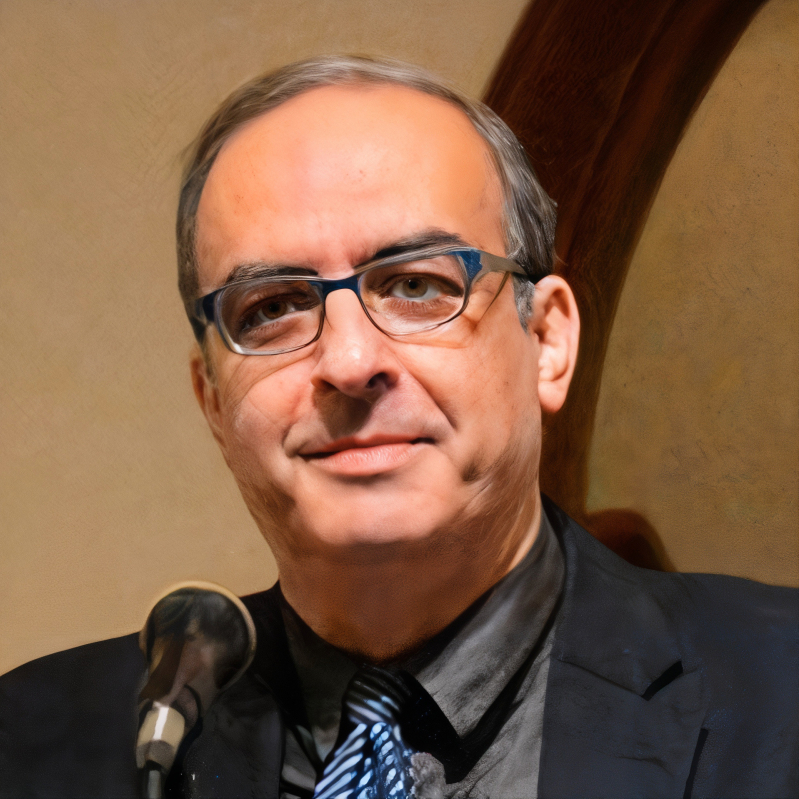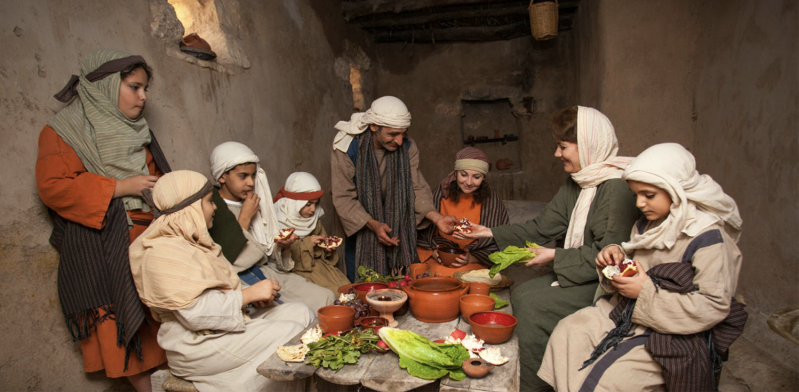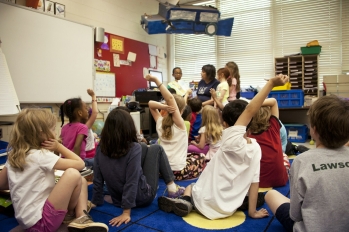
Arab Christian leader Botrus Mansour has been named secretary general of the World Evangelical Alliance (WEA), pledging to serve as a bridge-builder for a global evangelical movement that spans continents, cultures, and a wide spectrum of traditions.
In an exclusive interview with Christian Daily International, the Nazareth-born lawyer, educator, and longtime church elder described his appointment as both a surprise and a calling. “I love the Lord, and I love his Church,” he said. “My motivation has always been to strengthen the Church, to encourage pastors and believers to come closer to the Lord. I believe the Lord has given me some gifts that I now want to put at the service of the global body of Christ.”
The WEA, founded in 1846, is a network of national and regional alliances representing an estimated 600 million evangelicals worldwide. Its next General Assembly will convene Oct. 27–31 in Seoul, South Korea, where Mansour will be officially welcomed as the Alliance’s new secretary general.
Mansour acknowledged that applying for the role came with a sense of humility given the global scale of the organization. “The pool of candidates was very large, and I come from a small country with a very complex reality,” he said. “In some ways I felt like an outsider.”
He submitted his name after prayer and encouragement from friends who were confident in his qualifications. Weeks later, he learned he had been shortlisted among the final three candidates.
Days after that, while sitting in his weekly home Bible study, an email arrived confirming his appointment. “We were studying Philippians,” he recalled. “I opened it and read it quietly. Nobody noticed. But it was a wonderful confirmation. I thank the Lord for opening the door.”
Roots in Nazareth: family, faith, and a passion for justice
Mansour’s life story is rooted in Nazareth, the Galilean town known as the boyhood home of Jesus. He was born to a Greek Catholic father and a Greek Orthodox mother. His father, a pioneering journalist, became “the first Arab Palestinian to work at a major Hebrew-language newspaper (Haaretz),” while his mother was the first woman from her village in Cana to graduate from high school, completing her studies at Nazareth Baptist School.
Because of his father’s journalism work, the family moved to East Jerusalem after the Six-Day War in 1967, living in an Arab neighborhood among Muslim neighbors. Later, his father was awarded a scholarship to study at Ruskin College in Oxford, England, and the family relocated for two years. Botrus attended primary school there.
“I can tell people I went to school in Oxford — though it was primary school, not university,” he joked. Returning to Nazareth, he continued at the Baptist school, where he came to personal faith in Christ during high school. His siblings soon followed.
“That experience shaped our family,” he said. “Faith became personal, not just inherited.”
Drawn to law by a passion for justice and gifts in writing and public speaking, Mansour pursued legal studies at Hebrew University. It was not a straightforward path — he first studied economics before gaining admission to law — but he persevered, determined to become a lawyer.
During his student years, he was active in the Fellowship of Christian Students in Israel, the local branch of the global IFES movement, eventually serving as chair of its student council. Those years of ministry, he said, deepened his commitment to discipleship and the evangelical witness on Israeli campuses.
Lawyer, educator, and church elder: a life of service in Nazareth
After graduation, he practiced law independently in Nazareth. He also married A’bir, whom he met at university. They settled in Nazareth and became active in local church life.
In 2001, Mansour was asked to leave legal practice to become general director of Nazareth Baptist School, his alma mater. The school, founded in 1935, serves about 1,000 students from kindergarten through grade 12 and is known for academic excellence and strong Christian values.
“Because of its reputation for excellence, we have an open door to share the gospel,” he said. All students, including the 20% who are Muslim and the majority who come from Catholic and Orthodox backgrounds, attend chapel and Bible classes.
The school has built a reputation not only for rigorous academics but also for nurturing character and faith. Mansour described it as “a special place where education and Christian witness come together.”
His wife A’bir, an educational counselor, also worked at the school before retiring early for health reasons. Together they raised three children, all graduates of Nazareth Baptist School.
Their eldest, a physician, is married to another doctor, and the couple is expecting their first child — the Mansours’ first grandchild. Their second child earned a Rhodes Scholarship, completed doctoral research at Oxford University, and is now beginning postdoctoral work in Jerusalem. Their youngest daughter is pursuing graduate studies in communications and media at Haifa University.
“I am blessed with my family,” Mansour said. “My wife is the glue of the house, my greatest support and companion, the love of my life.”
Beyond his legal and educational work, Mansour has been deeply involved in evangelical ministry. He helped establish a new Baptist congregation in Nazareth, serving for 15 years as an elder, much of that time without a pastor. He continues to preach and provide English translation in services.
He also served on the steering committee of Nazareth Village, a living history site that recreates first-century Galilee to tell the story of Jesus. “It is a very special place,” he said, where visitors can see a working olive press, wine press, and reconstructed homes from the time of Christ.

Over the years, the site has welcomed hundreds of thousands of visitors who come to walk the “parable walk,” experiencing daily life as it would have looked in the first century and hearing the teachings of Jesus in that setting. Many leave with a profound spiritual experience, touched by the way the biblical story comes alive.
These initiatives reflect his conviction that evangelicals, though a small minority in Israel, can have an outsized impact by bearing faithful witness.
“It gives visibility to our community”: historic moment for Arab evangelicals
News of Mansour’s appointment as WEA secretary general was met with warm congratulations in Nazareth and far beyond. “People are very excited, very proud,” he said. “I received hundreds, even thousands of messages — not only from evangelicals but also from friends and acquaintances in other circles. Some people I had long lost touch with reached out to congratulate me.”
Within the Arab evangelical community in Israel, the appointment carries symbolic weight. For decades, Arab evangelicals have been a small minority — often marginalized both by the state and by larger Christian traditions. Mansour’s election to global leadership, therefore, feels historic.
“It’s not only about me,” he said. “It gives visibility to our community. It says we are part of the global evangelical family.”
Living between worlds: Mansour’s unique identity as Israeli and Palestinian
Mansour is candid about the complexities of his identity. “I am both Israeli and Palestinian,” he said. “When Israelis and Palestinians are fighting, I am in the middle.”
That reality has made him acutely aware of different cultures and perspectives. Living as an Arab Christian in a Muslim-majority community has attuned him to the concerns of Muslims. As an Israeli citizen in a Jewish-majority country, he has also learned to understand Jewish perspectives — both secular and religious.
Within the Christian community, evangelicals are a small minority, often viewed with suspicion by Catholics and Orthodox. “That has taught me empathy,” he said.
Mansour acknowledged that his identity can be challenging for different sides but believes it positions him uniquely to foster dialogue.
“For many evangelicals, it may be eye-opening to see someone in a visible global role who is also a Palestinian Christian,” he said. “That gives visibility to our people, which I am glad for. I would like to be a bridge between different theologies and between people who hold very different views about the Holy Land.”
He emphasized that he does not wish to wade into partisan politics but hopes his very presence can broaden understanding. “For some Christian Zionists, the fact that there is a Christian who is also Palestinian — while they may be calling for Palestinians to leave the land — is a challenge. On the other hand, for Palestinians, my being Israeli and an evangelical can also be a challenge. I don’t want to be everything to everybody, but I don’t want to be nobody for everybody either,” he said, adding that his goal is to embody a Christ-like spirit that brings people together across divides.
Citing Jesus’ teaching in the Beatitudes and the call for his followers to be peacemakers, he added, “Maybe in my position I can help people talk to one another, see one another’s needs, and recognize that every human being is created in the image of God. Even when it’s difficult to grasp, we must not ruin the image of God in the other, even if that person is considered an opponent.”
Mansour said he continues to pray for peace in the Holy Land and for an end to the war in Gaza.
Unity around essentials: a vision for the global evangelical family
He believes this background also equips him to serve as a bridge in the global Church and the very complex societies evangelicals live in. “We have very liberal people, very conservative people, and everything in between,” he said about Israel. “I have lived among all of them. Maybe that helps me to understand and be more sensitive.”
If there is one message Mansour hopes to bring to the WEA, it is unity around the essentials of the faith and gracious acceptance in everything else.
“We share together in the divinity of Christ, the authority of the Bible, the good news of salvation,” he said. “These are the essentials. On other issues, we must accept one another’s diversity. Too often, minor issues are elevated to the level of faith itself.”
He mentioned theological debates about Israel, women’s roles, or Calvinism as examples of disputes that can distract from the gospel. “Meanwhile, Jesus called us to love one another and to proclaim the good news. That is what we should focus on.”
Mansour stressed that evangelicals must not only emphasize personal conversion but also community transformation.
“We are called to bring people to know Jesus,” he said. “But we must also show that Jesus can change societies — marriages, business, the way people treat each other. Through the Holy Spirit, there can be transformation for the better.”
He hopes the Church will speak more clearly about peace and justice. “I would love the global Church to have a stronger voice on these issues,” he said. “Not to divide, but to bear witness that Jesus brings a better way.”
Asked about his vision for the WEA, Mansour said he wants to begin with a listening posture. “I don’t have a prepackaged vision,” he explained. “I need to listen first — to the board, to the regional and national alliances, to the staff. Only then can we discern together what God is calling us to do.”
He acknowledged the diversity of evangelicalism worldwide. “This is an organization that claims to represent 600 million evangelicals — and you will find 600 million opinions,” he said with a smile. “But if we keep the core central, and allow diversity on the secondary issues, we can move forward together.”
Mansour’s public introduction to his new role will be at the WEA General Assembly in Seoul this October.
“I would love us to end the assembly united, rallying behind the vision of taking Jesus to the world,” he said. “If people can put aside ego and minor theological disputes and rally behind the vision of the WEA, that will be pleasing to the Lord and a blessing to the world.”
He acknowledged it will not be easy. “It is simple to say, ‘be united,’ but solving the problems that divide us is difficult,” he said. “Still, we are people of the Bible. If we can put aside what is minor and keep the main thing the main thing — the gospel of Jesus — then we will be blessed.”
Summing up the heart of his approach, Mansour said, “I try to be Christ-like, bringing people together. Jesus is the prince of peace, and he asked us to be peacemakers. That is my calling.”






